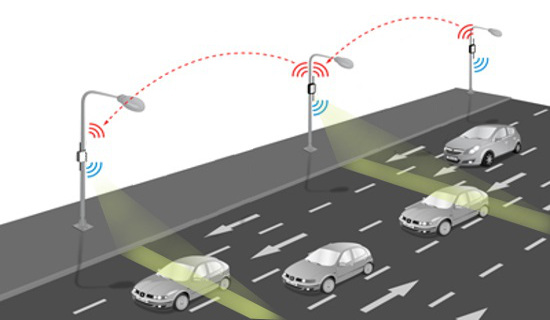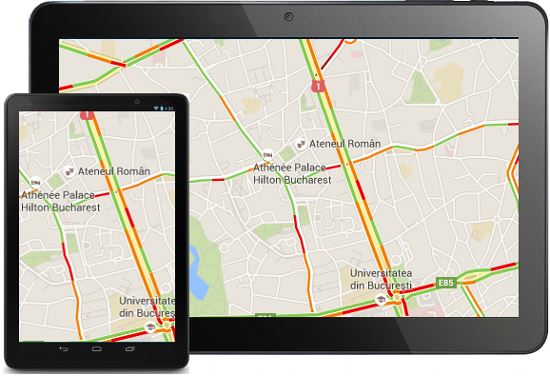Smart City Future

Traffic Monitoring
Traffic congestion is a burning issue in many cities due to an exponential growth of running vehicles. There are basically two types of traffic congestion. The first one is recurring traffic congestion, which appears at the same place during the same time every day. The second one is non-recurring traffic congestion, which occurs randomly like an unplanned event. This non-recurring effect can cause a sudden traffic volume increase. Detection of non-recurring traffic congestion is critical compared to the recurring type, because it requires real-time traffic information and evaluation thereof with appropriate traffic management decisions.
By integrating traffic sensors over the our Lighting control system (LCS), we can help cities and infrastructure operators to capitalize on the ICT (information, communication and technology) and to improve the road and traffic conditions through more efficient traffic management and monitoring.
Smart City Challenges
Mitigating traffic congestion on urban roads has a paramount importance in urban development by reduction of energy consumption and air pollution. This depends on our ability to foresee road usage and traffic conditions relating to the collective behavior of drivers. The highly predictable traffic patterns in spite of the heterogeneity of drivers' behaviors and the variability of their origins and destinations enables development of accurate predictive models for eventually devising practical strategies to mitigate urban road congestion. We are ready to offer a sensor solution that is capable of monitoring traffic density and presenting the data in a user-friendly graphic form known as a “heatmap”. Also, traffic sensors can improve analysis and management of traffic. If an accident happens, sensors detect the traffic slow-down and disturbances and start sending notifications to the management services and/or the traffic signs that will flash a warning to the drivers yet approaching the spot. With the help of sensors we can create an intelligent traffic light system by implementing so-called “green waves” technology. This system will coordonate series of traffic lights on the same road to turn green and thus allowing the group of cars to pass without stopping at intersections.

The Benefits of Becoming a Smart City:
 |
Smart City Management | |
|
Management tchnology is changing the way city streets are used, experienced, and managed, transforming them from points of physical connection to networked landscapes that enable a range of service innovations. |
||
 |
Information & Services | |
|
Smart streets are part of the more general development of smart cities and the emergence of the Internet of Things (IoT), which, together, will drive rapid smart street management market growth over the next decade. |
||
 |
Data Collection & Analysis | |
|
Sensors are being used to monitor air quality, noise pollution, flooding, and other hazards. Streets are also monitored through intelligent systems and are digitally mapped to provide a range of information services. |
||
 |
Plan The Roadworks | |
|
By analyzing traffic heatmaps, it is possible to estimate which locations and roads need maintenance most. |
||
 |
Mobility & Green Transport | |
|
Improving road traffic growth will boost mobility. Will increase interest in alternative travel routes by providing essential information. |
||
 |
Traffic Safety | |
|
Intelligent lighting on streets provides the right amount of light when and where people need it. It can dimmed light at a minimum level when no one’s around. |
||
 |
Air Pollution Detection | |
|
Air pollution monitoring can be integrated into the street lighting network - giving the city up-to-date and accurate data to help with planning and pollution reduction. |
||


 English (UK)
English (UK)  Romanian (RO)
Romanian (RO)